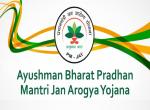When salmon swim against all odds to reach their spawning grounds no obstruction can stop them. The huge number of rape cases now being reported in India reminds me of this annual migration of salmon. Was India free of rape till fairly recently and has the crime become suddenly endemic? Is it a question of rape victims now becoming more vocal about the crime against them and more ready to come forward and report it? Have social mores and behaviour changed so much that suddenly there is an upsurge of rape against woman and is there both a qualitative and quantitative difference between the past and the present? Are women suddenly more unsafe than before? As a young D.C. and several years later, both in a senior capacity and after retirement while working in the rural areas, I often asked villagers why they insisted on marrying off their daughters as soon as they attained puberty. The universal answer I was given to my question was that the parents of girls felt that as their daughters approach puberty they become vulnerable to sexual assault and rural society was not organised to control this phenomenon. Therefore, parents tried their best to have prepubescent girls engaged and to be immediately married at puberty. The argument that the law prohibited the marriage of girls below the age of eighteen was not accepted by the villagers who countered that because the law was unable to protect the girl child, therefore, family honour demanded that the girl be given into legal matrimony. The fact that this virtually amounted to legalised rape of a young child who had not achieved full majority left most people cold. Here I might point out that the region where most child marriages took place was and is northern and central India. Kerala does not have this phenomenon at all. Considering how the northern mindset works, the khap panchayats of Haryana and the generally subordinate position of women in society, one is inclined to believe that there is a kernel of truth in the argument that as a girl matures she should be handed over to a husband through marriage, even if the girl was below the legal age of marriage. I would take this as a clear indication that India is not a society in which gender equality is the rule and that in fact there is a great deal of gender discrimination practiced both overtly and covertly in this country.
Can a country survive and prosper if half its population is discriminated against? As it is, the desire for a male child has already skewed the sex ratio adversely to women. When we look at different forms of discrimination within this country, including on account of caste, a social activist could argue that India is a highly exploitative society in which the fortunate few are able to build their own areas of influence by using those against whom they discriminate as stepping stones on to which they climb for their self-aggrandisement. This, however, is not an essay on equality equity and discrimination per se and I shall leave the argument here, but with the remark that the sexual exploitation of women is only one of the results of having a society which is not based on equality. This is a matter which should cause great concern to our politicians, administrators, academicians and social activists.
Let us take the recent rape in a moving bus in Delhi, which has left the victim at death’s doorstep and has virtually acted as the last straw on the camel’s back in that it has breached the bounds of tolerance of our people and united them in revulsion against such crimes. The ongoing protests in Delhi are evidence of the people at large being fed up with the deteriorating law and order situation and the sheer ineptitude of government in dealing with it. The fact that crime against women is on the increase and government has been unable to contain it is a major factor behind public anger. It expressed itself at a spontaneous gathering of the young at Vijay Chowk at India Gate and through virtual blockade of Raisina Hill, the seat of government. What the demonstrators were demanding is the quick arrest of the accused, swift trial and condign punishment. There was an element of lynch law in the demand of the demonstrators, but that is only to be expected when tempers are running high. That does not mean that government should succumb to pressure exerted in the streets, but certainly the government is expected to listen to what people are saying. Unfortunately that is not what is happening.
The sequence of events is that perhaps twenty-five thousand people gathered at Vijay Chowk and along Rajpath. This gathering was spontaneous and certainly it did not have a political organisation behind it. The police barricaded the streets and deployed a large number of policemen equipped with anti-riot gear. This included a number of Vajra Vans which are equipped with water cannon and tear gas launchers. This is the stage at which the President should have walked out of Rashtrapati Bhawan and down to Vijay Chowk. He should have invited the demonstrators to gather around him, he should have heard them and then assured them that he would persuade government to take swift action to apprehend the accused, bring them to trial and vigorously prosecute them so that they could be convicted and sentenced in the shortest possible time. The Prime Minister, the Home Minister and the Lieutenant Governor of Delhi should have assisted the President in this behalf. It should not have been left to Mrs, Sheila Dixit, Chief Minister of Delhi, to be virtually the only person to plead the case for quick justice. The young demonstrators would have been reassured if this had happened and I am absolutely confident that the agitation could have been contained there.
There is another area in which swift action was called for. I spoke to the Cabinet Secretary and the impression I gathered was that the movement of the bus in question had not gone altogether unnoticed. Apparently a police patrol vehicle had sighted the bus, but despite its erratic movements it had not been thought fit to stop and inspect the vehicle. The dark film on the windows of the bus and the drawn curtains both violated the rules in this behalf framed under the Motor Vehicles Act and that was sufficient ground to stop the bus and board it. Obviously there was gross dereliction of duty by Delhi Police personnel on the ground and this is inexcusable. An alert government should have called the District DCP, Sub-Divisional ACP and the Station Officers of the police stations through whose jurisdiction the bus passed to account and taken drastic action against them. Obviously the DCP had not instructed his officers properly on how to deal with violations of rules by bus owners, nor were members of the patrolling staff properly directed in the performance of duty. Unfortunately in India we only act against minions and not against the superiors under whom they function. Action against errant officers does not demoralise the police force if there is evenhanded justice. Inaction which leads to deterioration in police performance certainly demoralises people at large and in the ultimate analysis government is there for the people and not for some officials. The excuse that action against police officers demoralizes the Force is neither justified nor acceptable.
There was total political mishandling of the situation because no senior minister cared to communicate with people in the streets of Delhi. Its officials did not do so either. In 1966 I was District Magistrate of Ujjain when a serious bout of students’ unrest arose, which culminated in violence in which stern action was taken, resulting in twenty-three students and twenty-one policemen being admitted to hospital with fractures, etc. The Superintendent of Police had five fractured ribs and I had a dislocated knee and a head injury from stone throwing. There was great anger in the student community and amongst the police, but I walked into Madhav College, the epicenter of rioting, the very next day and in the canteen I asked the gathered students to get me a cup of tea. When the students reacted angrily I asked them how many more of them would like to join their colleagues in hospital and on this a sullen student brought me a cup of tea. I then gathered the students around me and allowed them to vent their anger. After they ran out of steam I told them that a week from that day I would take them on a picnic to an irrigation tank near Ujjain and would also have a hockey match with them. I said that whilst enjoying my hospitality they were free to heap abuse on the Superintendent of Police and on me. In due course the picnic took place, the students beat my hockey team by four goals, went through all the food that we had prepared and ultimately we all parted as very good friends. The moral of the story is not that I am a great guy but rather that if people who wield power interact with and listen to citizens almost every problem can be solved. Had our leaders and officers been more sensitive the Delhi situation could have been defused within one day. It is the sheer ineptitude and inability to govern of our present government that is responsible for its own woes.
The matter is now mired in filthy controversy. The angry Chief Minister of Delhi has openly criticised the police, especially because she has no control over it. The Police Commissioner, an IPS officer who should have kept his mouth shut, has chosen to go public. If a subordinate officer had done so, he would have been charged with violation of the Conduct Rules. Neeraj Kumar should know that the rules apply to him also and for any civil servant anonymity is of prime importance. There are charges and counter-charges, with a controversial statement by Neeraj Kumar that if sacking the Police Commissioner improves the situation he should be sacked every day. Does it mean that stringing him up by his thumbs would be an even better solution? The fact is that Delhi is perhaps the only city which has a police force adequate in number as a proportion of the total population. Obviously the police is not as sensitive to its duties as it should be, with the result that crime against women is not taken as seriously as it should. The police has to be very proactive in ensuring that the dignity of women is protected and proactive policing demands intervention by the police in every case in which there is any element of sexual harassment. The malady is an old one. I remember that in 1978 the daughter of Dr. Sneh Bhargava, who went on to become Director, AIIMS told me that when she went to college using a public bus she wore extra thick jeans or trousers, despite which her bottom was often black and blue because would be Romeos never hesitated to pinch it. I was head of the Delhi Development Authority and Delhi was a smaller city and we were still a conservative society. Today things are worse, which is all the more reason why the police must be proactive and society must insist on this.
On the one hand is the victim of this particular rape who may or may not survive, which means the offence would be of murder if she dies. If this happens and the court convicts and sentences the accused to death, I suppose the blood thirst of the people would be assuaged, though it would not bring the victim back to life. On the other hand we have a government which even today is handling things in a highly ham-handed manner. The lathi charges, tear gassing, use of water cannon perhaps became inevitable once the crowd had become restive and, subsequently, violent and uncontrolled. However, what led up to the situation was the fact that no responsible person spoke to the crowd and this led to lumpen elements entering the fray. Now there is an unseemly fight between the Chief Minister of Delhi and the Police Commissioner and the allegations have rendered the air thick with an impure fog. What is going on? Do we have no government worth the name today? We need to take the following steps immediately.
- The Delhi Police should be transferred lock, stock and barrel to the National Capital Territory Government and the Chief Minister should be made directly responsible for law and order.
- Because Delhi is an Union Territory some powers may be reserved for the Lieutenant Governor in the matter of law and order just as it is in Nagaland and Arunachal Pradesh.
- The Delhi Police Commissioner should be told that he is supposed to silently do his duty of administering the police force, maintaining law and order and controlling and prosecuting crime. He is not allowed to open his mouth in public.
- The Ministry of Home Affairs should restrict itself to general policy guidelines, but leave superintendence over the police to the Lieutenant Governor and the Chief Minister of Delhi.
- The entire police force should be sensitised to protecting the dignity of women and any officer of any rank who fails in his duty should be immediately subjected to severe disciplinary proceedings.
- Government must even now engage the people in dialogue, take strict action to ensure that the present case ends in successful prosecution and the situation is defused and normalcy restored.
Published Date: 31st December 2012









Post new comment